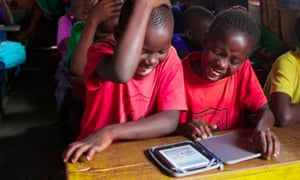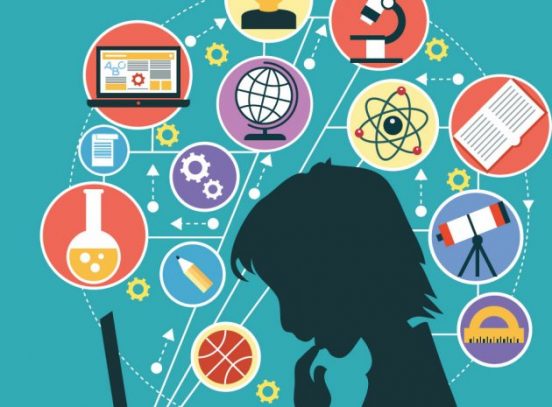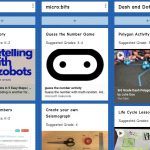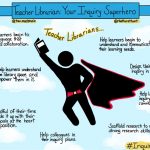Reflecting is a crucial part of becoming both a better teacher and a better learner. We encounter many new ideas in our readings and in our personal learning networks but it is in our reflecting on these ideas that we may integrate the ideas that resonate with us the most into our own pedagogy. While reflecting on the inquiry phase of this course, I focused on some key takeaways.
Firstly, instilling a love of reading (or hating it less) may be a challenge no matter where in the world you are. I am particularly passionate about this topic as reading and books are a deep love of mine and passing this on to others is something that I am very much driven to do. I am, by nature, motivated to do this both in my personal life as well as my professional life, and so am always interested in finding new ideas to incorporate into my practice. Throughout this course I have gotten some practical ideas on how to encourage reading such as the “What Should I Read Next?” jar (https://www.scisdata.com/connections/issue-108/promoting-reading-for-pleasure-in-school-libraries/) and various reading challenges such as the one found here: (http://www.yalsa.ala.org/thehub/2017/01/20/promoting-reading-reading-diversely-high-school-libraries/). There are some other great ideas on those sites as well.

One way to encourage an interest in reading, both here and elsewhere in the world, is through the use of technology. In fact, technology came up again and again as I continued to work through the inquiry topics. Whether a rural community in Africa or a major city in Canada, using mobile technology such as e-readers and tablets encourages reading.

In Ghana, for example, wifi e-readers are replacing print materials in many communities. This is for practical reasons, but it has also has positive results on literacy rates. “Once the gadgets have reached their destination, it costs almost nothing to keep them stocked with educational materials, and teachers consider them less distracting than laptops or tablet computers. They can also be used to display local material, including newspapers, health and voting information” (Bridle, 2013). As of the date of the article in 2013, one particular organization had put “over 662,008 ebooks into the hands of 4,300 children in sub-Saharan Africa – and research shows they now read more, and read better. As one teacher in Kade noted: “Before, it was difficult to get books. Now we will have as many as we want” (Bridle, 2013).
Reluctant readers tend to be more engaged in reading when given the opportunity to read on an e-reader or some other form of technology. In 2015, a study in the UK found that “being given the opportunity to read ebooks had a positive impact on children’s reading attitudes, particularly for boys and those who began the project as less engaged readers” (The Impact of E-books on the Reading Motivation and Reading Skills of Young People, 2015).

Technology can also help with accessibility. Students who have learning disabilities or language barriers will benefit from using digital platforms. Not only does this have the potential to help them learn, but it can have a major impact on their self-confidence and how they perceive themselves. “It has been suggested that technology is a great equalizer, which for many people with disabilities technology can serve as a kind cognitive prosthesis to overcome or compensate for differences among learners” (Lee, n.d.). The following video highlights some of the many advantages of technology in the classroom.
Technology has also changed how we both deliver and receive professional development. We are no longer limited to the knowledge of our immediate colleagues. The internet and social media platforms have opened up a world of experts that we may interact with as part of our personal learning networks. This is advantageous for several reasons. Not only are we able to learn from a wider range of professionals, but we are also distanced from them. “The fact that there isn’t always a personal relationship creates a nice amount of autonomy for both parties in these relationships – when you aren’t face to face on a regular basis, its easier to take the ideas you want from your network and make them your own, or to leave the network when you’re ready” (Gray, 2019).

The main takeaway from the inquiry phase of this course has been that technology is something that we must embrace. Rather than fearing the changes that will inevitably come, or resisting them, we must learn how to use these tools to improve our teaching and learning. I realize now that I have often used technology just for “technology’s sake.” Myself, and others like me, often use the Smartboard as a whiteboard or a projector rather than the incredible interactive tool that it is. We often use social media sites for personal connections but not professional ones. We are not using the tools we have to their fullest potential. Going forward, I am going to continue to learn and grow my practice when it comes to how to really integrate technology into both my classroom and my professional learning.
Bibliography:
Bridle, James. (2013, 8 September). E-Readers: The Best Way to get the World’s Children Reading. The Guardian. Retrieved from: https://www.theguardian.com/technology/2013/sep/08/ebooks-ereaders-worldreader-kade-ghana#maincontent
Gray, Kyleen. (2019, 15 May). Leveraging Social Media to Build a Digital PLN. Retrieved from: www.edutopia.org/article/leveraging-social-media-build-digital-pln
Lee, Pyrah. (n.d.) The Use of Technology to Promote Inclusion. Retrieved from: http://edu3008.blogspot.com
The Impact of E-books on the Reading Motivation and Reading Skills of Young People. (2015, 9 December). National Literacy Trust. Retrieved from: https://literacytrust.org.uk/research-services/research-reports/impact-ebooks-reading-motivation-and-reading-skills-children-and-young-people/
Featured image source: https://www.teachsecondary.com/ict/view/6-great-digital-resources-for-ks3-science

 Follow
Follow






Taryn Bennett
March 6, 2020 — 6:38 pm
I think that instilling a love of reading is probably a topic that resonates with most teacher librarians! It certainly does for me. I love your, “what should I read next?” jar idea! Such a simple way to encourage reading.
On another note, I have also found that e-readers and technology could be a solution to making reading accessible and more exciting for reluctant readers. I think the traditional side of me has tended to shy away from using technology for quality literacy practice in the past, but through my explorations in this course, my eyes have been opened to the possibilities technology brings to reading and literacy. Great post!
Abi
March 9, 2020 — 1:10 pm
Instilling a love of reading is a topic that resonates with me as well, both professionally and personally. My focus in this regard is on my grade 5’s, many of whom leave book exchange without a book. I like the “what should I read next?” jar as it provides students with a fun, interactive way to find their next read. Something we have been considering in my library is a school reads/recommendations board where staff and students can share some books they have enjoyed reading.
Darcy
March 8, 2020 — 1:24 pm
This is a strong reflective post that outlines your learning from phase 2. I appreciate the way that you looked at our key themes through the lens of technology. I agree that technology can often us used for tech’s sake – rather than as a tool to help us access and deepen connections and learning.
Laura Breckenridge (Sherriff)
March 10, 2020 — 6:04 am
I like your statement about embracing rather than fearing technology. I’m not sure if I’m quite at the embracing point yet, but I’m definitely fearing it less. I also liked your point about being able to learn from a wider range of professionals. When I first qualified as a teacher, you were just starting to see teaching blogs hit the internet. Now, we have so many online resources to help us with our practice. Big changes.